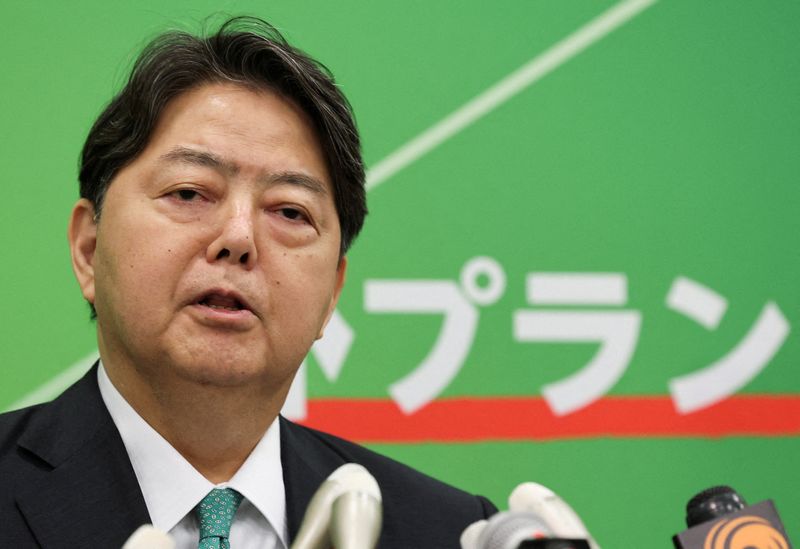Japan PM contender Hayashi backs BOJ rate-hike strategy
By Takaya Yamaguchi and Leika Kihara
TOKYO (Reuters) -The Bank of Japan’s plan to gradually raise interest rates is broadly in line with the government’s thinking on economic policy, Yoshimasa Hayashi, top government spokesperson and a contender to become next prime minister, told Reuters.
Asked whether he was concerned that any interest rate cuts by the U.S. Federal Reserve could hurt Japan’s export-reliant economy by pushing up the yen against the dollar, Hayashi said policymakers in Tokyo were moving past such assumptions.
Japan’s traditional aversion to a strong yen, held mainly among exporters and at times a trigger for government intervention, had diminished, he said in an interview on Sunday.
“Conversely, we’ve seen the yen weaken which, coupled with rising oil costs since Russia’s invasion of Ukraine, caused cost-push rather than demand-driven inflation,” he said.
Domestic wages and the price of rice were rising although the surge in import costs seen at the outset of the Ukraine war in 2022 had subsided, Hayashi said.
The remarks highlight policymakers’ growing focus on the weak yen and subsequent rising inflation as the main problems facing Japan – a sea change from the orthodoxy of recent years that saw a strong yen and deflation as the biggest drags on growth.
With inflation exceeding its 2% target for well over three years, BOJ Governor Kazuo Ueda has signaled the bank’s resolve to gradually raise interest rates – still stuck at 0.5% – to levels deemed neutral to the economy.
“My understanding is that the Bank of Japan, in close communication with the government, is conducting monetary policy in a way that does not deviate much from our thinking,” Hayashi said.
His remarks came after the BOJ’s decision on Friday to start selling its risky asset holdings and a split vote on maintaining low rates that kept alive expectations of a near-term hike.
Hayashi is among the candidates running in the ruling party’s leadership race to be held on October 4 after Prime Minister Shigeru Ishiba’s decision earlier this month to step down.
The next leader of the Liberal Democratic Party is likely to become prime minister as the party is by far the largest in the lower house of parliament. But the path is not guaranteed as the LDP lost its majorities in both houses under Ishiba.
The LDP’s leadership contest has drawn strong market attention and led to a rise in government bond yields on the view the next leader could boost fiscal spending.
If chosen as prime minister, Hayashi said his government would compile a package of measures to cushion the economic blow from rising living costs while boosting provisions for disaster relief.


